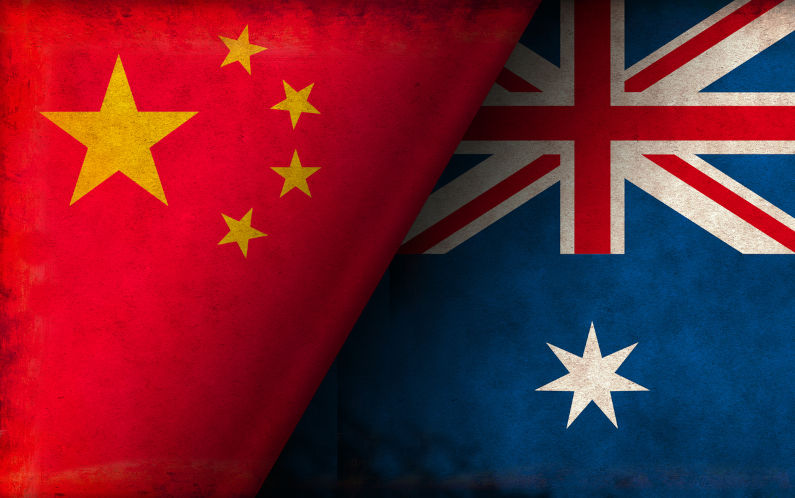While the big China threat remains AI platform DeepSeek, The Australian reminds us that the true “evil” is Canberra not doing anything about China’s threat to national security, and Nine Newspapers remind us that LNP politicians taking money from rich Chinese-Australians are good, while their benefactors are likely up to no good.
Chinese New Year: a time to bring good fortune to the Chinese and votes to Dutton
Showing he’s a man of the people, more specifically the Chinese people, Peter Dutton took a walk amongst the common Chinese folk at Sydney’s Chinatown and Box Hill in Melbourne last weekend. It got a decent run across mainstream news websites and the nightly television news bulletins. Nine Newspapers, and its television news, clearly wrestling with its support for the LNP and opposition to Chinese community leaders chose the latter.
Under the headline [paywall] in Nine Newspapers (01/02/25) “‘I think we’ll bring it back’: Dutton makes private pledge to review $5m investor visa”, David Crowe reveals video of a conversation Dutton had with a Chinese-Australian migration agent named Min Li at a fundraising event in John Howard’s former seat of Bennelong, now held by Labor.
Asked about the now scrapped significant investor visa and whether he would bring it back, Dutton is seen in a video, labelled a Nine News exclusive, telling Ms Li it’s on his to do list but he’s not sure whether before or after the election.
Crowe makes the point that Min Li has a supposed alias, stating “Li, who is also known as Sandra Li…” It’s a common media practice of suggesting sinister motives because somebody from a Chinese background has adopted an anglicised first name. Big deal. When my family arrived in Australia in the 1950s, they all anglicised their names.
One of the Anglo-Australian LNP members, who attended the event in the Nine News report, is a relentless fundraiser. It’s not a stretch to say such events use rich Chinese as ATMs at election times, yet the recipients of those funds sit back and silently watch their benefactors getting torn apart by mainstream media. Nine Newspapers is quick to paint Chinese-Australian attendees at such events as sinister; why does Crowe’s story not pose any serious questions about the LNP politicians and party fundraisers holding their hands out for the money?
Seven News (31/01/25) brought some sense to Dutton’s Chinese New Years musings and — given the previous LNP government’s blowing up of China relations — Dutton’s claim that China relations will be stronger under an LNP government. Seven’s Josh Martin ends his report with the obvious, nonetheless important, point, “The Opposition Leader’s comments also reflect the Liberal Party’s need to win a number of key seats in Sydney and Melbourne, with high numbers of Chinese-Australians.” Exactly.
DeepSeek’s threat to our way of life
Where to begin on Chinese-developed AI platform, DeepSeek? It’s now been banned by the federal government for use by employees on government devices. Fair enough, China bans Western technology and puts up a giant internet firewall in order to keep Western technology out.
The question is, why are we banning DeepSeek and what exactly is it? This is where the media hysteria comes in. As pointed out in last week’s column, DeepSeek is an open-source platform so developers outside of China can, for want of a better word, customise it for any use they want. No government, China or otherwise, can collect data from AI applications that are built on DeepSeek’s platform.
The media is now lining up, claiming DeepSeek is an existential threat akin to Huawei and TikTok. Bear in mind, for years Huawei and TikTok have been international security threats yet there’s never actually been a major reported incident of malfeasance.
The Sydney Morning Herald (30/01/25) runs an opinion piece [paywall] from conservative UK journalist Ambrose Evans-Pritchard under the banner “China’s DeepSeek miracle is not everything it seems”. It’s hard to know where journalism ends and satire begins, as this story advances a DeepSeek conspiracy theory that, “China’s Communist Party could hardly have wished for a more obliterating propaganda stunt… the politburo has a collective sense of humour.” For the poor reader, they’d have to have a sense of humour, either that or no sense at all.
The substantive issue with DeepSeek is that if ordinary users who download the app on their personal devices grant permissions, then DeepSeek will collect their data. The media reports are, without consideration, claiming that data will automatically end up in the hands of the Chinese Communist Party. Some data likely will, however, the reality is China spends most of its energy collecting the data generated by its own people censoring them on sensitive topics like Xinjiang and Hong Kong democracy.
Nine Newspapers, (04/02/25) announced [paywall] “Australia bans Chinese AI platform DeepSeek on government devices” and credits private security company CyberCX for identifying the threat. CyberCX is a commercial enterprise, run by former senior government advisers, with a commercial incentive to inflate cyber threats. It’s not to say they aren’t right to urge caution, but this article goes on to advance the proposition that a major threat looms over corporate Australia, surely not a bad way to drum up business.
The Australian (05/02/25) reports on the DeepSeek threat to corporate Australia, “DeepSeek hit with more bans as Australian companies tighten controls”, seeking comment from a number of Australian companies. Correspondents Jared Lynch and Joseph Lam see fit to throw in a totally unverified claim that, “Other companies declined to comment publicly out of fear of being targeted by Chinese or “activist” hackers.” Really?
Buried at the bottom of that story are quotes from US tech giants, including Facebook (now Meta) founder, Mark Zuckerberg. He praises the technology DeepSeek is built upon. As does Microsoft’s vice-president of AI platform, Asha Sharma. In a company statement, Amazon says: “With AWS (Amazon Web Services), you can use DeepSeek-R1 models to build, experiment, and responsibly scale your generative AI ideas by using this powerful, cost-efficient model with minimal infrastructure investment.”
Endorsements such as Amazon’s are completely ignored by almost all mainstream media reports, yet against the backdrop of national security hysteria is the fact that Amazon has a $2 billion contract to store Australia’s national intelligence data over the coming decade. Undoubtedly DeepSeek has been downloaded to Amazon devices and its developers are considering how they can use its open-source technology. Is anyone in the Canberra press gallery going to float questions about the government’s connections to Amazon?
ASPI now lecturing the government
What a difference a government makes. For years, under the leadership of two executive directors, Justin Bassi and his immediate predecessor, Peter Jennings, the Australian Strategic Policy Institute has proclaimed its independence, while rarely if ever questioning LNP policies. Hundreds and hundreds of mainstream media reports ignore the fact it is a Commonwealth company, and its charter deems that the appointment of executive director must be ratified by the defence minister.
Jennings is a former chief of staff to Liberal defence minister Ian McLachlan; Bassi a former chief of staff to, then foreign minister and previous defence minister, Marise Payne.
Reportedly against the advice of the ASPI board, Bassi was personally appointed by then defence minister Peter Dutton. It appears Bassi is now doing the alternate prime minister’s bidding.
In an opinion [paywall] piece in The Australian (03/02/25), he writes “‘Evil’ silence from Canberra on threat to national security”. Ostensibly his story is about Prime Minister Anthony Albanese not being tough enough on antisemitism, drawing direct parallels to the rise of Nazi Germany in the opening paragraph. Three sentences later he takes aim at “the malicious rise of China.”
Bassi goes on to conflate the caravan terror plot, where explosives and a list of possible Jewish target were discovered in caravan on the outskirts of Sydney, with Albanese’s refusal to disclose the subject matter of private talks with Chinese President Xi Jinping.
There’s some waffle on US president Franklin Roosevelt’s rapid public response to the Pearl Harbour attacks, then back to China. First, a swipe at foreign minister Penny Wong’s handling of Chinese-Australian Yang Hengjun’s suspended death sentence in China on espionage charges; next slamming the government for not taking the “security threat” of Chinese cars seriously.
The absurdity of such arguments aside, if The Australian wants to give column space to a taxpayer-funded analyst to slam China, at least have the integrity not to do it under the guise of commentary on antisemitism.
Marcus Reubenstein is an independent journalist with more than twenty-five years of media experience, having previously been a staffer with a federal Liberal Party senator from 1992 to 1994. He spent five years at Seven News in Sydney and seven years at SBS World News where he was a senior correspondent. As a print journalist he has contributed to most of Australia’s major news outlets. Internationally he has worked on assignments for CNN, Eurosport and the Olympic Games Broadcasting Service. He is the founder and editor of Asian business new website, APAC Business Review.

